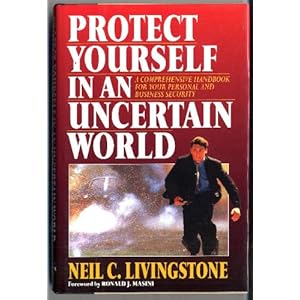Technological change is constant and continuous, of course: I don’t mean to suggest that any one invention (and certainly not something as cosmically small as a new style of coffee maker) is a watershed. But, perhaps because change is constant, with epochal changes accumulating in tiny daily increments, it sometimes catches me by surprise when I’m reminded how terribly new so much of the world I live in really is. It’s not so much a matter of the “shock of the new” as it is the shocking newness of the commonplace.
 Watch an old movie, and find yourself wondering why the imperiled protagonist doesn’t simply call for help using a cell phone or Google the answer to their problem… and then remember that most people didn’t have cell phones or Google back then… and then take in the realization that the “back then” represented in this “old” movie is no more than 10 or 12 years ago! The technologies behind cell phones, computers, digital television, etc., may have been invented decades ago, but the extent to which they define the fabric of daily life for ordinary people is, from any sort of an historical perspective, instantaneously new: It’s essentially all happened within my adult life, and much of it has happened during the lifetime of my daughter, who will graduate from college this year.
Watch an old movie, and find yourself wondering why the imperiled protagonist doesn’t simply call for help using a cell phone or Google the answer to their problem… and then remember that most people didn’t have cell phones or Google back then… and then take in the realization that the “back then” represented in this “old” movie is no more than 10 or 12 years ago! The technologies behind cell phones, computers, digital television, etc., may have been invented decades ago, but the extent to which they define the fabric of daily life for ordinary people is, from any sort of an historical perspective, instantaneously new: It’s essentially all happened within my adult life, and much of it has happened during the lifetime of my daughter, who will graduate from college this year.Back in the early 70s, when Samuel Glazer was helping revolutionize home coffee making, microwave ovens and electronic calculators were making their way into homes (I remember what a revelation the 4-function, single-memory desktop calculator my dad brought home was, compared to the neighbor’s electromechanical adding machine). My father brought home an Ericophone handset at a time when owning your own phone (as opposed to renting it from the phone company monopoly) was still an exotic, legally grey activity, and pushbutton phones and home cordless phones (complete with walkie-talkie style telescoping metal antennas) were on the bleeding edge. Widespread adoption of cable television (“pay for TV?!?!”) was still more than half a decade in the future, as was the advent of home videocassette recorders (now, of course, themselves made extinct by the DVR and streaming internet video). The Apple ][ computer wasn’t released until 1977 (I bought my first, a 48k RAM Apple ][+, in 1982), and the original IBM PC not until 1981, but the computer-as-we-know-it has even later roots: the Apple Macintosh in 1984 and the first truly useful versions of Microsoft Windows not until the early 90s. I saw my first cell phone — an expensive, large-ish box permanently installed in the car of a privileged student at the private high school I taught at — in 1984, but it wasn’t until well into the next decade before the phenomenon of mobile phones in the pockets of the middle class began to be widespread.
Commercialization of the internet and widespread private access to the World Wide Web began around 1995, before which most people’s online experience, if any, was limited to proprietary membership services such as CompuServe, Genie, Prodigy, and America Online (AOL), accessed through glacially slow dialup modems. Only after the turn of the millennium, with the build-out of digital cable, DSL, and direct-to-home satellite services, did high-bandwidth, always-on internet access become commonplace. And, of course, smartphones and tablet computers, in which the telecommunications and computing streams are finally fully integrated, are barely out of metaphorical diapers.
And there you have it: The world we2 live in, constantly connected to a rich matrix of information, media, and communications (not to mention all the other technological and social innovations not directly related to the information technology revolution) is younger than this year’s college seniors. And yet… from moment to moment and day to day, it often seems as if it has always been this way.
Just like there has always been a Mr. Coffee machine in the kitchen.
1 Junior high school, in my actual case, but that term seems to be disappearing, along with junior college.
2 I’m admittedly using a fairly privileged version of we, here, but the world I describe is increasingly the cultural matrix for even the less privileged, at least throughout the so-called first world.

